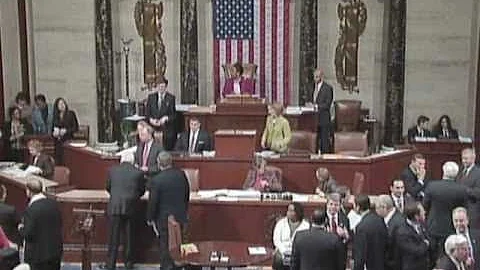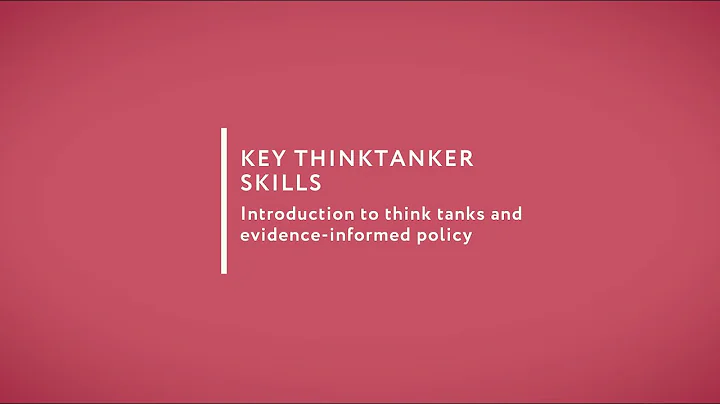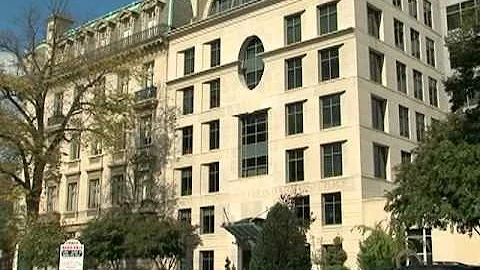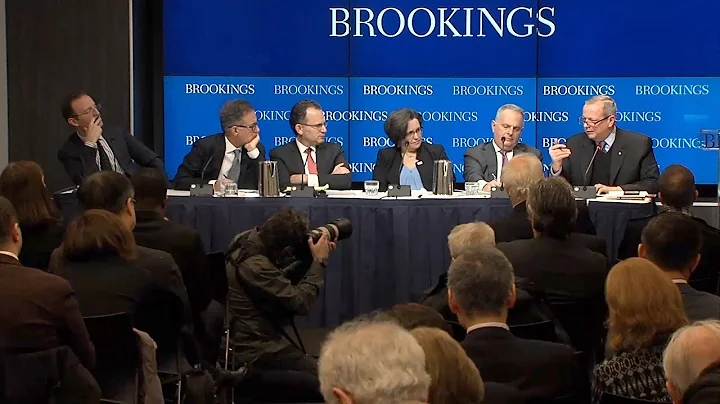
Introduction
In the extensive work of systemic change, think tanks (think tanks) are an important force: traditional think tanks influence public policies and promote changes through knowledge production and knowledge accumulation. However, the “knowledge-based” approach of think tanks has in the past resulted in problems such as a single number of personnel, a single form of presentation of results, and a disconnect from reality.
In this article, we introduce a case from the United States that reflects the diversity efforts of a think tank. The problems that this practice attempts to solve are common to many institutions, and its ideas and practices may also be used for reference by different types of institutions.

Issue editor: Liu Shuijing
Author: Emma Vadehra
Translation editor: Ren Kelu, Li Yumeng
The United States is undergoing a major change in policy making. Policy incrementalism is giving way to broad, grassroots demands for structural change in the wake of a landmark pandemic that itself provided the backdrop for a generations-long reckoning with racial injustice. But elected officials aren’t the only ones in need of improvement. As the wider policy ecosystem begins to adapt to the post-2020 world, think tanks that provide intellectual support to policy campaigns will also need to evolve their approach. They currently provide support through research, analysis of data and evidence-based recommendations.
Think tanks may be slow to adapt to new circumstances because of long-standing biases against the qualifications of policy “experts.” Traditionally, think tanks have qualified experts based on education and advanced degrees, which often means that degree credentials take precedence over personal experience or professional experience. These hiring preferences alone prevent many people from participating in discussions that impact their lives: If think tanks want mid- to senior-level staff in research and policy fields to have a master’s degree in , only 4% of Latinos and 7% of blacks qualify. Candidates’ educational requirements (lower than whites, 10.5%, or Asians/Pacific Islanders, 17%). Many think tanks select experts from specific fields such as economics, but only 0.5% of doctorates are awarded to black women every year.
Think tanks by themselves cannot change the larger cultural and social forces that have historically placed restrictions on entry into certain fields. However, they can change their approach, that is, they can change how they assess expertise and who they choose to recruit and develop as policy experts. In doing so they could push the wider policy sector, including governments and philanthropic donors, to follow suit. Because as the next generation campaigns for policy and runs for office, the public policy sector has not done enough to diversify and support the people who create, research, enact, and implement policy. Furthermore, excluding affected communities from the decision-making process makes our democracy less inclusive, responsive and effective.
htmlThe Century Foundation is a century-old think tank that has experienced many changes in policy-making methods. Two years ago, colleagues at the Century Foundation and I established an organization called Next100 to experiment with a new think tank model.

Next100 policy entrepreneurs. Photo by Bridget Badore for Next100
Our mission is simple: shape policy by stakeholders and make it work for them. We believe that close contact with the policy service community will make policy more effective; we also believe that people with personal experience are as much policy experts as Ivy League PhDs, and we have invested strength and resources to support this belief.
Last year’s pandemic and the outpouring of calls for racial equality have reinforced our belief that we need to thoughtfully democratize policymaking. While everyone now knows that COVID-19 has exposed and exacerbated deep historical inequalities, not enough has been thought about why these inequalities exist and why they are so severe.How policy is made, and who makes it, are key causes of these problems.
In order for more think tanks to make this shift, the broader policy ecosystem will also need to join the shift. Funders of think tanks tend to prioritize funding narrow and traditional forms of policy expertise. While funders appear to be shifting of late, this shift is reflected in their funding of other areas of social change and does not benefit organizations dedicated to influencing policy. Although the tide is turning, many philanthropic organizations still limit funding for organizational operating expenses, which are used to hire, recruit and train diverse talents.
Here are three ways that redefining expertise can help think tanks better address our most pressing policy challenges:
01. Involve voices from affected communities in policy recommendations
Most think tanks follow a traditional hiring model, That is, new researchers work under the guidance of more senior policy experts and contribute to the agency's existing research and policy priorities. While this apprenticeship model can steadily build a think tank’s pipeline of young talent, those new to policy departments have to spend a lot of time helping advance other people’s ideas before they can advance their own agenda.
Instead, What if think tanks considered hiring people from and connected to the communities most affected by policy, while providing them with the training and platform to effectuate the policy changes they believe are needed?
For example, Rosario Quiroz Villareal grew up as an undocumented immigrant, was a recipient of Deferred Action for Childhood Arrivals (DACA), and was teacher. (Translator's Note: According to Wikipedia , the Deferred Action for Childhood Arrivals is a policy launched by the (former) President of the United States Obama in June 2012, allowing certain immigrants who were under 16 years old to enter the United States. Documentary immigrants apply for a renewable two-year deferred action and allow them to apply for work authorization. This policy was initiated by Obama as an executive order without a vote in Congress)
She applies these experiences to her work at Next100, focusing on. to help immigrant children. Her experience and connections to the community have helped the organization build trusting relationships with communities that are hard to reach but vulnerable to the impact of state policies. In recommending improvements to state policies related to immigration, she worked hard to incorporate the voices of undocumented immigrant parents who were often ignored in the past. She worked with trusted community organizations to design the project, which involved focus groups in four states and ensured there were no language barriers for speakers of Creole and Spanish throughout. In order to be accountable to these communities, she returned to the focus group before the policy recommendations were published and presented the content of the recommendations to participants. In the final version, she based her recommendations on the personal experiences of undocumented immigrant families, which are often difficult to study through data analysis.
By broadening the definition of the concept of “expertise,” think tanks tap into “untapped resources” that enrich and deepen their policy recommendations.
02. Establish diverse talent acquisition channels to bring fresh perspectives to traditional discussions
If think tanks really want to hire diverse people, they must change their talent practices. From investing in advocacy services and recruitment, to changes to application and selection processes, to more targeted onboarding and long-term skills development, making a meaningful difference in influencing policy requires investment and creative thinking to attract promising candidates. , and these people often do not fit the requirements of the traditional public policy professional model.
Next100 focused on reaching a broad network of talent through solid pitches and developed an application process that intentionally avoided certain barriers to hiring (no college degree requirement, for example), thus attracting nearly 100,000 people for a handful of positions at an unknown organization. 750 applications of various types.The eight first hires, whom we call “policy entrepreneurs,” have diverse perspectives and rich personal experiences (such as incarceration, former homelessness, undocumented immigrants, and, in one case, Iraq refugees), these have had an impact on the work they are doing. However, it is also critical that once think tanks successfully recruit new people to their teams, they must support these new people by investing in high-quality induction, long-term training and skills development, but these are often not the usual investment focus of the think tank industry.
For example, Taif Jany fled his native Iraq to Syria after his father was kidnapped when he was 16 years old, and eventually became an international student at Union College in New York. He has worked with the complex visa system that often limits or squanders the talent who can bring ideas and contributions to the United States, and has changed it through his work at Next100 while working to transform the narrative about immigration. , highlighting the huge contribution that immigration has made to our economy and social structure. During the COVID-19 epidemic, when the U.S. government took measures to exclude international students, Taif's work provided a basis for accepting these students.
Likewise, another Next100 policy entrepreneur, Isabel Coronado, is a native of Muskogee, also known as the Creek. Growing up, her mother's experience with incarceration prompted her to bring family issues into criminal justice considerations. Nearly 3 million children in the United States have an incarcerated parent, many of whom are Native, Black, and Latino children. By focusing on the prospects and potential of children with incarcerated parents, Isabel's work has led to the advancement of sentencing reform that emphasizes the priority of keeping families intact.
For think tanks that have been working on specific policy areas (such as public education/immigration, or criminal justice reform) for decades, the convergence of new ideas and perspectives can help break down traditional barriers and unearth new changes. Way.
03, Beyond the "White Paper"
Changing the people who influence policy also changes the way policy is formulated. Although most of the basic output of think tanks is data and text, which are packaged into reports or information pages and disseminated in paper or PDF format, such publications can hardly touch the most at stake in policy debates. people.
Michael “Zaki” Smith is a barber, DJ and activist who comes to Next100 with an eye toward ending the problems faced by people with criminal records The mission of "Eternal Punishment". Because of his criminal record, Zaki suffered a "silent life sentence," a series of laws that restricted his access to employment, housing and other basic needs and cost him his coveted job as a tutor. Zaki forgoes traditional think tank white papers and instead works to create public art murals in Brooklyn to engage affected communities about the attached consequences of a criminal record. His innovative creative initiatives led to legislation in New York that would have criminal records expunged after an individual repays his or her "debt" to society.
In recent years, To build a more inclusive future in the post-pandemic world, a system of new organizations has begun to reimagine how decisions are made. think tanks have been an important part of the policy push, and we need their help to address complex challenges. By modernizing concepts of what expertise is, who can drive policy change, and how policy is made and implemented, think tanks can pave the way for a more inclusive, just and equitable country.
Source: SSIR official website, first published on May 27, 2021





















